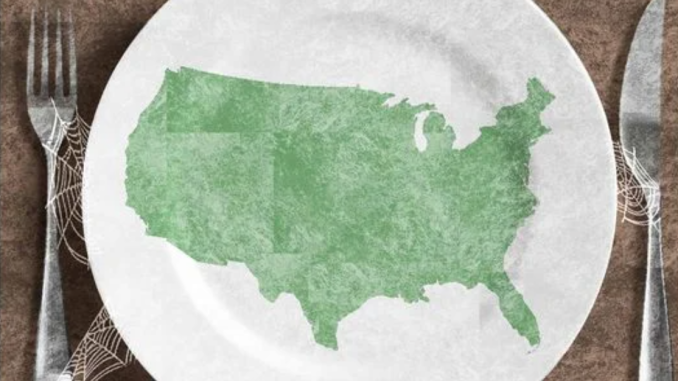
OPINION:
Last week, a fire ravaged a Festive Foods plant near Waupaca, Wisconsin. Festive Foods is a leading co-packer of USDA-certified frozen pizza and appetizers. Seventy firefighters spent nearly 12 hours trying to contain the blaze, reportedly sparked by work being done in the plant’s compressor room.
Earlier this month, a fire at a JBS meatpacking plant in nearby Green Bay caused nearly $30,000 in damage. In April, fires destroyed the headquarters of Azure Standard, a distributor of organic food in Dufur, Oregon; a Taylor Farms Processing Facility in Salinas, California; and an East Conway Beef & Pork butcher shop and slaughterhouse in Conway, New Hampshire.
At least 12 U.S. food processing facilities have burned down in the last six months. This comes as 37 million chickens have been killed on U.S. poultry farms this year due to the avian flu — the worst outbreak in recorded U.S. history — and the deaths of at least 2,000 cattle in Kansas during a heat wave this month.
Food security is essential to national security. As Russia’s war in Ukraine upends global food markets and as high gas prices and supply chain disruptions in the U.S. have sent costs higher and grocery store inventories lower, the Biden administration should be doing everything it can to fortify U.S. production.
Fires at large food processing plants can starve the nation’s food supply. Four companies account for about 70% of U.S. pork production (Smithfield, JBS, Tyson and Hormel), 75% of U.S. beef production (JBS, Tyson, Cargill and National Beef) and roughly 60% of the U.S. poultry market (Tyson, JBS, Perdue and Sanderson).
A 2019 fire at Tyson’s beef processing plant in Holcomb, Kansas — the second-largest beef packing plant in the U.S. — halted its production for four months, disrupting the entire supply chain and causing price spikes.
Multiple “fact-checkers” have asserted there is nothing to see here, that the unusual string of industrial fires can be explained away as accidents.
Still, with farmers warning of upcoming food shortages due to soaring prices on diesel fuel, fertilizer and seeds, the string of fire disasters seems like another issue the Biden administration should be concerned about — if not actively investigating.
For that’s what’s coming next — a global food crisis.
“For so long, we’ve enjoyed lots of food in this country, so we’ve never ever faced a food shortage and I think that’s coming in the coming months,” John Boyd Jr., president of the National Black Farmers Association, said during an interview on NewsNation’s “On Balance” with Leland Vittert last week.
Asked if food shortages were a possibility, Kyle Kotzmoyer, a legislative affairs specialist for the Pennsylvania Farm Bureau, told the state legislature earlier this month, “If the farmers cannot get crops out of the ground, then there is no food on the shelves.”
Mr. Kotzmoyer said he has already heard of farmers selling seed corn or beans back to dealers so they can plant hay, which has “more return on investment” because of soaring diesel prices.
“We have reached that point to where it is very close to being a sinking ship,” Mr. Kotzmoyer testified. “We are teetering on the edge right now.”
Once again, you would think President Biden would be doing everything within his power to stave off this looming crisis. Fires at food processing plants should be investigated, and federal safety protocols enforced.
The same goes for the avian flu outbreak in our poultry sector and the recent cow deaths in Kansas.
The federal government should be releasing more acreage as cropland, and American farmers should be allowed to plant as much land as they want penalty-free from the Conservation Reserve, which pays landowners an annual rent to idle fragile cropland for 10 years or more.
The push to transition the American population from red meat to synthetic meat in order to curb carbon emissions — as promulgated notably by Bill Gates — needs to be exposed for what it is, an absurd policy.
And the war on the fossil fuel industry needs to end. Just for starters, we should allow the energy industry to drill by quickly processing permits on federal lands, greenlight pipeline construction, withdraw refineries’ biofuel mandates and end so-called “environmental, social and governance” regulations — which have slowed private companies from accessing the capital needed to increase drilling and refining capacity.
Of course, these actions would irk the climate change ideologues within the Democratic Party, and therefore they stand no chance under a Biden administration.
Mr. Biden is going to transition us to a clean economy — even if we have to starve to get there.
• Kelly Sadler is the commentary editor at The Washington Times.
* Article from: The Washington Times